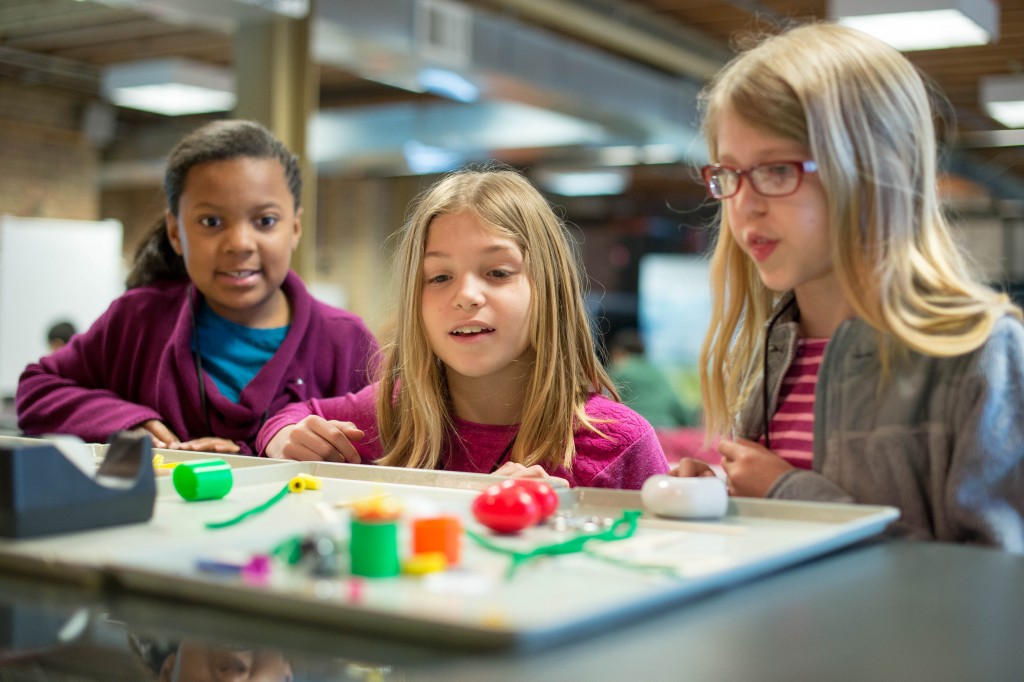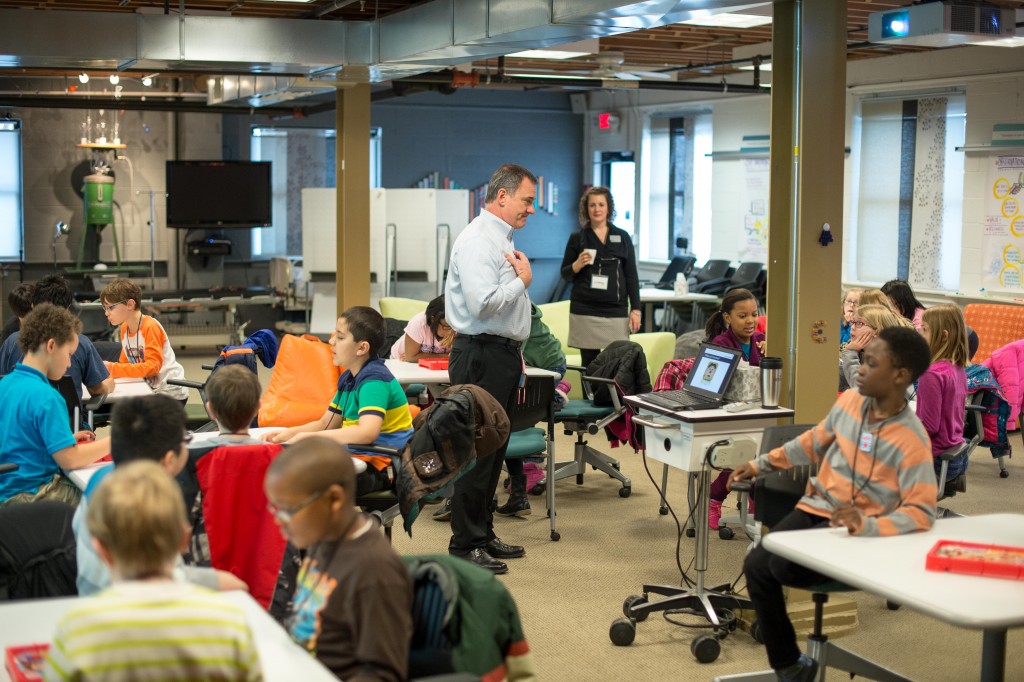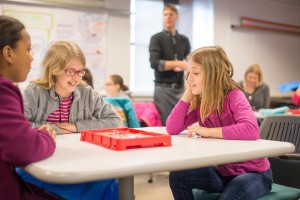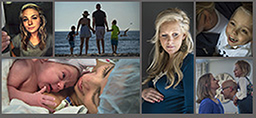
Any experienced player of the children’s game Operation knows the secret to winning is in extracting implements from the patient’s body with a pair of tweezers while avoiding the buzz.
Knowing why the buzzing sound occurs is crucial, says Mike Miller, director of intellectual assets at Spectrum Health Innovations, because the “secret to innovating lies in identifying the problem.”
It is a concept the 26 Kentwood Discovery Elementary fourth-graders who gathered recently to play Operation are used to hearing.
The students are part of a gifted and talented program. They spend three years immersed in the theme of innovation. Recently the kids experienced how Spectrum Health Innovations encourages innovation on a daily basis.
Spectrum Health Innovations is a service for Spectrum Health’s 22,000 employees, focused on health care entrepreneurship–moving ideas from concept to reality in an agile, resourceful and financially viable manner. The program focuses on the development and launch of promising new health care products and technologies in addition to business models for serving patients and transforming the care model.
On their recent visit, the students formed small teams and were turned loose to play Operation. As the repeated buzz began to ring out across the hands-on lab space, Miller posed a question: “How can we do this better?”
“We’ve got to avoid that buzz,” was the most common student answer to the question.

Armed with kits containing tape, putty, string, paper, paper clips, popsicle sticks and other materials, students were asked to find ways to improve their approach to the game by using those materials.
“I couldn’t believe how targeted the lesson was,” said the students’ teacher Joseph Westra, who is completing his eighth year in the Kentwood Gifted and Talented program. “It was so specific and exactly what I had already been preaching. It was so acute and just hammered the point home in a very specific, hands-on and collaborative way.”
After the Operation assignment was completed and a can-do atmosphere permeated the room, the mini-surgeons were ready to be challenged with a real-life scenario: Brainstorm ideas that could help children living with neuromuscular disorders participate in a wide range of physical activities and improve their mobility.
The students were tasked with analyzing existing scenarios and designing new solutions to overcome barriers or enhance benefits they identified. Collectively they illustrated designs to improve swimming, going up and down stairs, riding a bike, riding in a school bus, driving a car and walking. One group designed a pair of pants allowing children to swim and run faster using microchips and an app.

“The purpose of the session was to provide a group of very talented and gifted students the experience of exploring innovative ideas,” Miller said. “Ideas that can profoundly change the health and well-being of people can come from anywhere.”
“Of course the kids loved it,” Westra added. “We made it clear this is a space that Spectrum Health has set aside for the purpose of practicing innovation—a space where staff members get together to address a need within the organization. That’s what spurs innovation.”
In addition to its internal mission to improve the care model, Spectrum Health Innovations works with a wide variety of external partners in business, government, academia and the non-profit sector.
“Building strong partnerships has enabled us to stake out a larger role in supporting innovation and helping to create a greater entrepreneurial culture throughout the region,” said Brent Mulder, PhD, senior director of innovations. “Collaboration is a key component of innovation, and the more of it we have the better it is for the entire community.”
Lori Henry contributed to this report.
 /a>
/a>
 /a>
/a>
 /a>
/a>